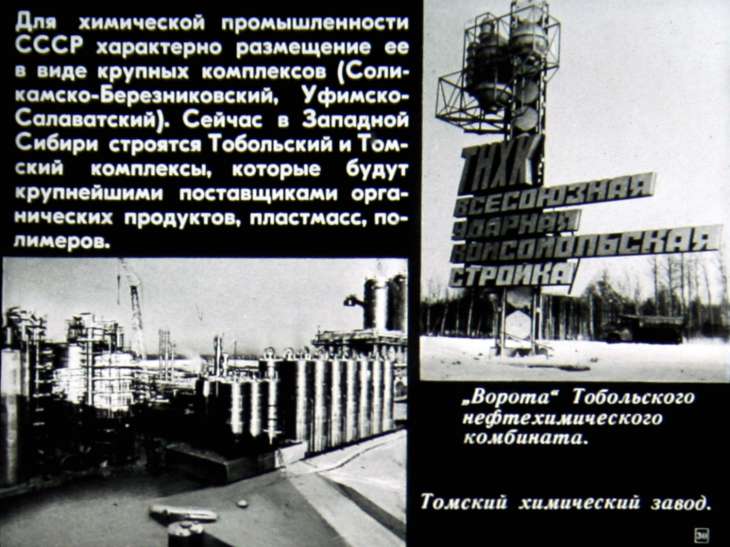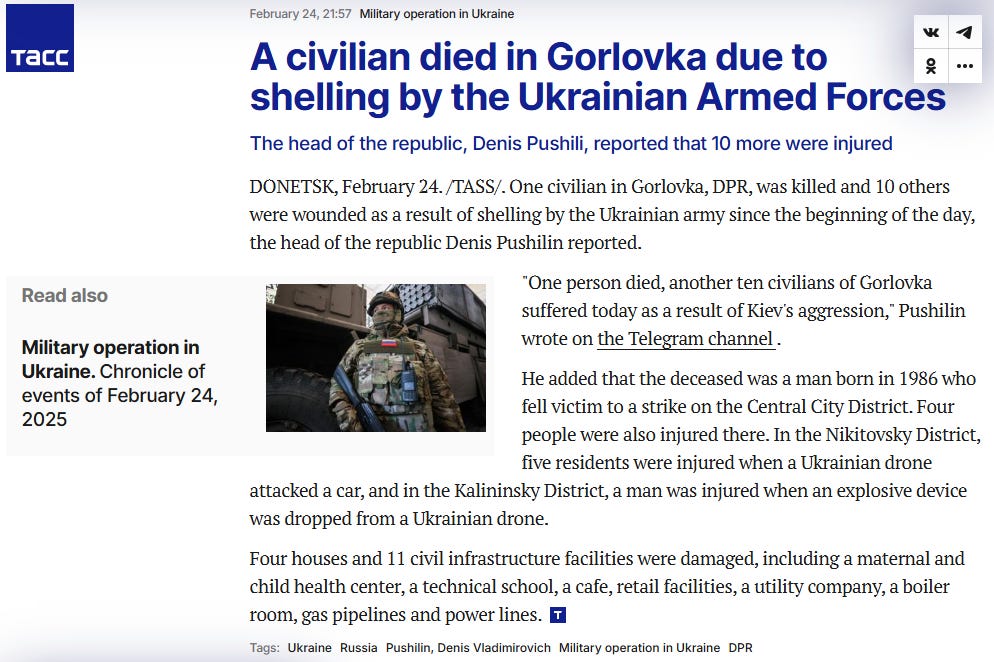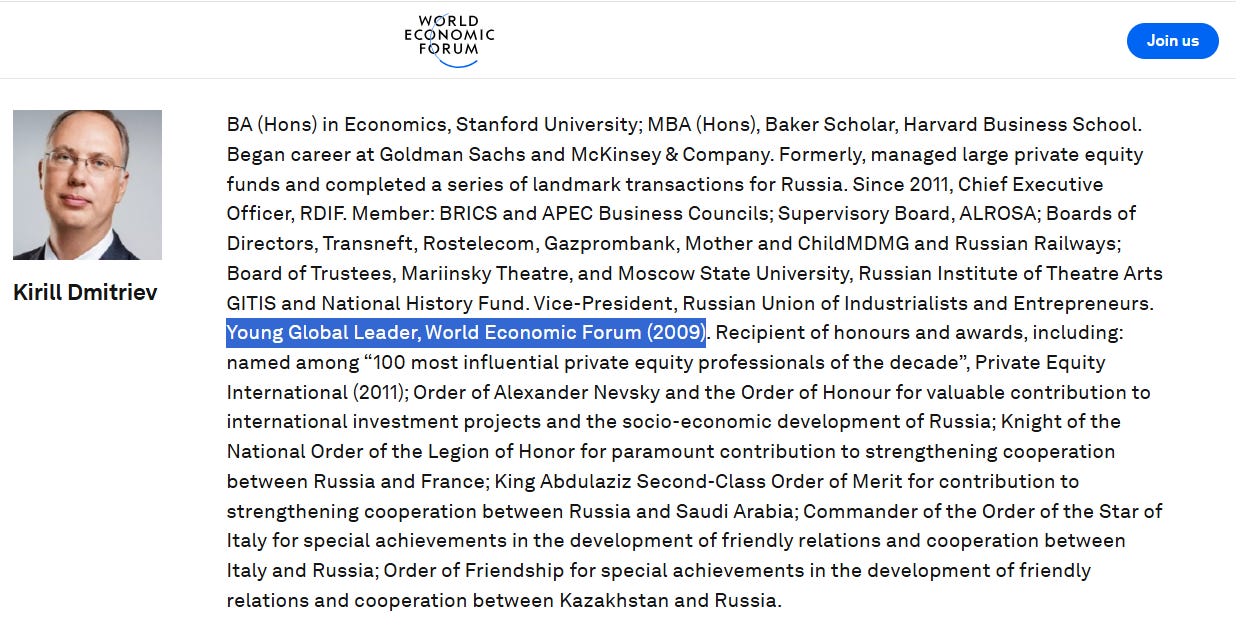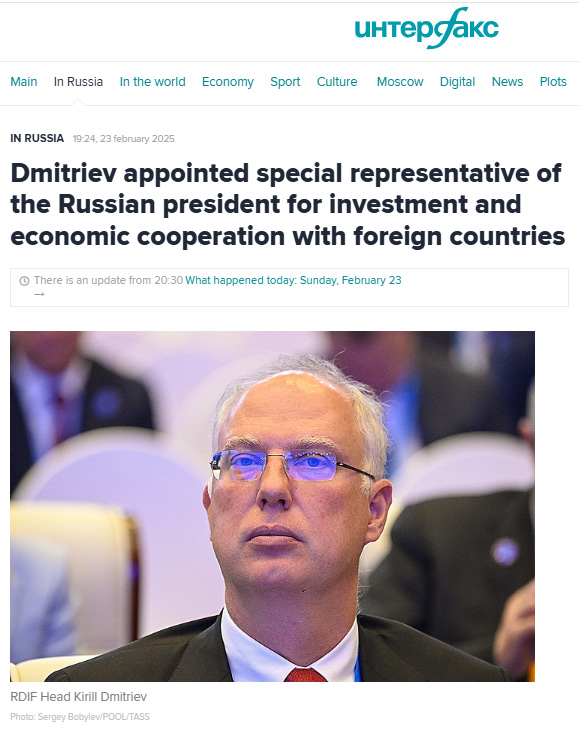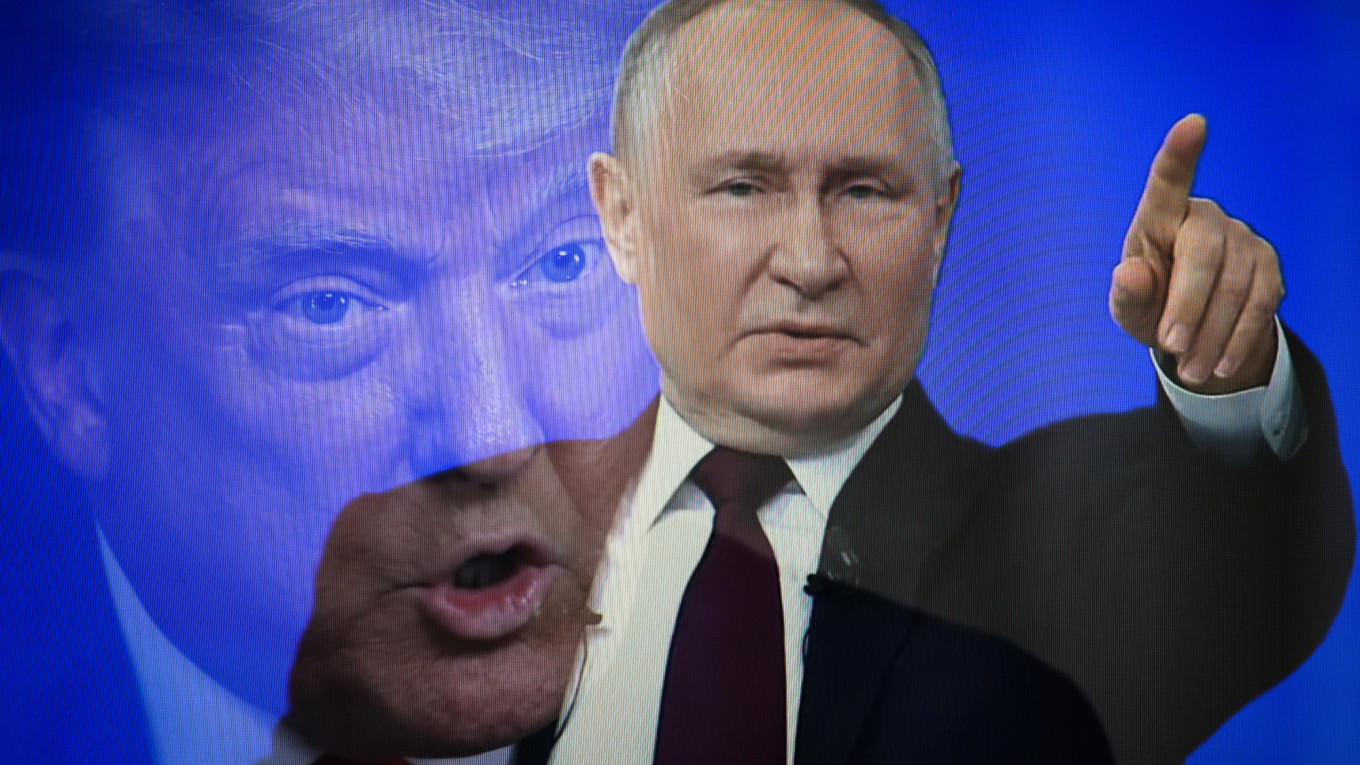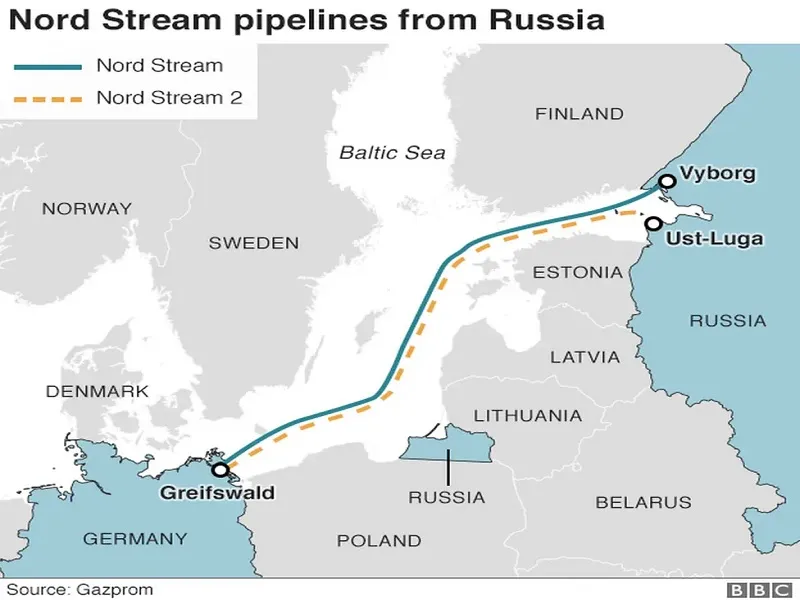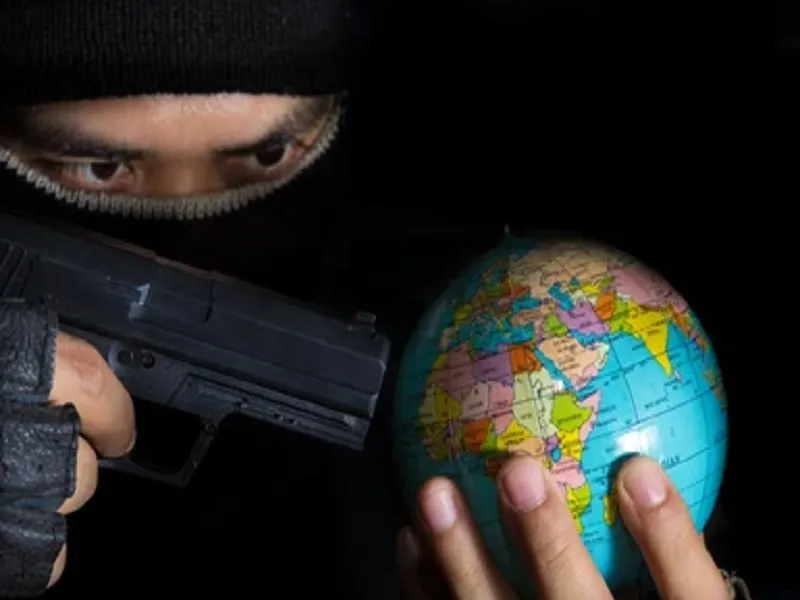RUSSIA DOESN’T BELIEVE IN CARROTS OR STICKS – IT BELIEVES IN TIME

by John Helmer, Moscow @bears_with
President Donald Trump has asked President Vladimir Putin to assist him in arranging a grand Middle East peace deal. This, according to officials leaking to Bloomberg reporters, requires Iran to agree to dismantle its nuclear weapons programme, and also “Iran’s support for its allied groups such as Hamas and Hezbollah in the Middle East.”
The leakers, “people with knowledge of the situation, asking not to be identified”, according to Bloomberg, reportedly did not ask Putin to mediate the restoration of the Pahlavi monarchy.
The news agency story follows by three weeks the White House announcement on February 4 of “a National Security Presidential Memorandum (NSPM) restoring maximum pressure on the government of the Islamic Republic of Iran, denying Iran all paths to a nuclear weapon, and countering Iran’s malign influence abroad. The NSPM establishes that: Iran should be denied a nuclear weapon and intercontinental ballistic missiles; Iran’s terrorist network should be neutralized; and Iran’s aggressive development of missiles, as well as other asymmetric and conventional weapons capabilities, should be countered. The NSPM directs the Secretary of the Treasury to impose maximum economic pressure on the Government of Iran, including by sanctioning or imposing enforcement mechanisms on those acting in violation of existing sanctions.”
The US officials briefing Bloomberg claim that after his big stick move, Trump made two small carrot moves in the direction of the Russians. On February 12, Trump told Putin on the telephone that he had a deal to end the war in the Ukraine if Putin would help with a deal to end Iran’s war in the Middle East.
Trump then told Secretary of State Marco Rubio to say more when he met in Riyadh with Foreign Minister Sergei Lavrov in Riyadh on February 18. Whatever the Americans say they said, Lavrov omitted to mention it in the communiqué and press briefing in Riyadh.
During his subsequent meetings in Teheran on February 25, Lavrov was explicit – almost — in opposing Trump’s stick-wielding. “We underscored the inadmissibility of unilateral economic sanctions,” Lavrov announced after meetings with President Masoud Pezeshkian and Foreign Minister Abbas Araghchi. “We will continue substantive and focused efforts to mitigate the adverse effects of these unlawful restrictions on the economies of Russia and Iran…We have discussed at length the developments around the Joint Comprehensive Plan of Action. We remain convinced that the diplomatic resource is still there and should not be left unused. Instead, it should be engaged as effectively as possible and no threats or allusions to forceful solutions should be made. We are committed to continuing the search for acceptable solutions to the situation at hand which was created by our Western colleagues, not Iran.”
Since the refusal of Kremlin support for Iran’s military alliance with Bashar al-Assad’s government in Damascus last November and December, the subsequent recriminations between Teheran and Moscow have not been entirely or clearly resolved. For the record of the recriminations, click; for the attempt to resolve them in the January treaty signing, read this; for the continuing irresolution, look again.
On Friday, March 7, Trump said he believes Putin will do more for Trump’s Ukraine “deal” than the Kremlin is admitting publicly. “I think he’s going to be more generous than he has to be, and that’s pretty good.” Is this true? Is it an American attempt to sow suspicion and distrust in Moscow between the General Staff and the Kremlin? Is it also aimed at splitting the Iranians from the Russians?
Lavrov’s announcement after his meeting with President Pezeshkian was non-committal on the concessions Trump wants from Iran for denuclearization and withdrawal of support for Hamas, Hezbollah, and Ansar Allah (Houthis). “During the exchange of views on pressing global and regional issues, the focus was placed on the evolving situations in Syria, Lebanon, Afghanistan, the Palestinian-Israeli conflict zone, and matters pertaining to the Caspian region. The sides coordinated their positions regarding the state of affairs surrounding the Joint Comprehensive Plan of Action on the Iranian nuclear programme,” the Russian communiqué announced after Lavrov met with Pezeshkian.
“Coordination” is a camouflage term in the current Russian-Iranian relationship. It appears 71 times in the January pact Pezeshkian signed in Moscow with Putin. Its meaning, Russian sources believe, carries outer ambiguity, inner secrecy – also uncertainty under the pressure Trump is applying.
A Russian source in a position to know believes the strategic consensus in Moscow, and also at the Ukraine front, is that “the empire [US] won’t stop its war with Russia. But we need time to correct the tactical mistakes that have been made. Trump’s peace is going to be short-lived. Maybe five years, maybe eight. There’s no point fighting him at every step. We’ll try to get the best deal possible that leaves him thinking he looks good. After losing eight years, Russia wants to gain eight years.”
A military source comments that in the short run the more confusion Trump and his officials create, the more time the Russian General Staff has to accelerate the military offensive westward from the current line of contact towards Kiev. “The American learning disability is showing across the board,” he says. “The kettle is now on the boil in Sumy. The Ukrainians are cut off in Kursk and don’t have much more time left. East of the Dnieper, it’s apparent that Putin’s foot is off the brake.”
The US side is now calling time. National Security Advisor Michael Waltz has announced that he, Secretary of State Marco Rubio, and Steven Witkoff will return for negotiations with their Russian counterparts in Riyadh next week. The Kiev regime has announced they will be meeting the US delegation on Tuesday.
As Russians report, analyse, and debate the implications of policy-making by press release and tweet from Trump and his officials, Moscow sources acknowledge what physicists have long recognized as the Observer Effect. The closer the observer and his methodology get to the object or target, the more disturbance is created, the less clear the object’s visibility, and the more unpredictability of how it will behave.
This is intentional on Trump’s part, the sources believe – it’s his idea of how to conduct deal-making. Uncertainty and confusion are also the condition in which Trump’s officials find themselves, competing with each other for factional policy positions, influence at the White House, and personal power. For the time being, the Russian response to Trump’s Ukraine end-of-war deal and also his Iran and Middle East end-of-war deal is – the sources emphasize — to delay, wait and see.
TRUMP’S CLOCK — MARCH 4

Source:
https://www.bloomberg.com
The Bloomberg report can be listened to here.
TRUMP’S CLOCK — MARCH 7: 1:40 PM (WASHINGTON, DC, TIME)
““I think he’s going to be more generous than he has to be, and that’s pretty good.”
https://x.com/RT_com/status/1898067296393851225

TRUMP’S CLOCK — MARCH 7, 5:17 PM (WASHINGTON TIME)
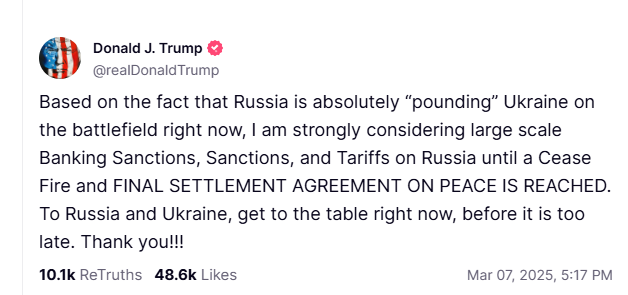
Source:
https://truthsocial.com/
Responding to the Bloomberg report, Putin’s spokesman Dmitry Peskov said: “”Russia believes that the United States and Iran should resolve all problems through negotiations” and that Moscow “is ready to do everything in its power to achieve this.”
The Iranian response has been similar. “Given the significance of these matters, it’s possible that many parties will show good will and readiness to help with various problems,” Bloomberg reported the Foreign Ministry spokesman, Esmaeil Baghaei, as saying during a press conference in Teheran on March. “From this perspective, it’s natural that countries will present an offer of help if it’s needed.” Baghaei refused to speak directly with Bloomberg.
In preparing for the coming round of Riyadh talks, the Russian positions on terms for the Ukraine settlement are clearer than the US terms. It is quite the opposite for the terms of the Iranian settlement – the US is clearer than Russia.
To understand how officials in Moscow are thinking, the state-funded internet publication Vzglyad is both a sounding board for different policy factions around the Kremlin and a windvane of the direction Putin is expected to take. Interpreting this new report, published on Friday afternoon, it is necessary to read between the lines where the meaning is reversed.
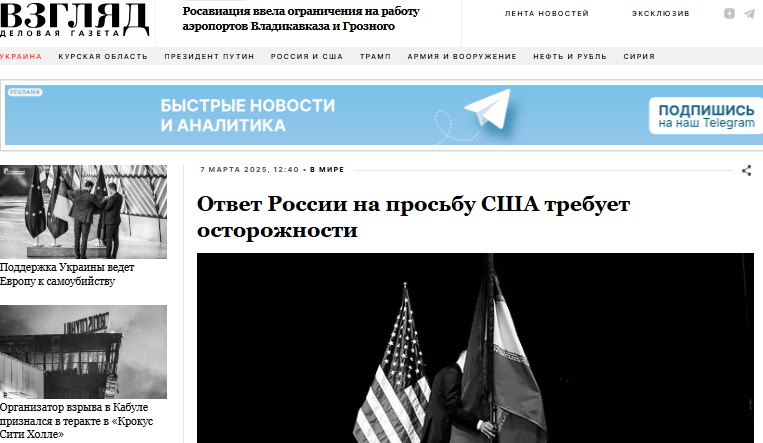
Source:
https://vz.ru/world/2025/3/7/1318799.html
March 7, 2025
Russia’s response to the US request requires caution
By Gevorg Mirzayan
“This is evidence of a general warming of relations between Moscow and Washington.” With these words, experts assess reports that Washington has asked Moscow to mediate in negotiations with Iran. Such mediation opens up both opportunities and dangers for Russia. What is this about?
The United States needs Russian help in normalizing relations with Iran. This is reported by the American publication, Bloomberg. According to its sources, Donald Trump voiced the relevant request during his talks with Vladimir Putin on February 12, and then US Secretary of State Marco Rubio and Russian Foreign Minister Sergei Lavrov discussed it at their meeting in Saudi Arabia.
The logic of the American side is clear. Despite Trump’s dislike of Iranians, he has no time for conflict with the Islamic Republic right now – there is neithertime, energy, nor desire for this. “For the Trump administration, any reduction in tensions with … Iran could be a victory, as it would not have to focus on the Middle East,” writes The Jerusalem Post.
On the other hand, the United States cannot let the situation with Iran take its course either. After the failure in Syria, the Iranians feel vulnerable – and, according to Western media, they are accelerating the process of creating a nuclear bomb as their ultimate weapon of defense.
At the same time, there is now a unique chance to resolve all the problems peacefully, partly because Iranian President Masoud Pezeshkian is also a proponent of a diplomatic solution to the conflict. And the defeat in Syria, multiplied by the economic crisis in the country, allows him and his supporters to “sell” a compromise with the United States as the best solution to all problems.
It is clear that Washington and Teheran cannot speak directly, which means that an intermediary is needed. Influential and at the same time honest, whose word is trusted by both sides. That is, Russia.
“The United States understands that negotiations with Iran will be difficult, and therefore, not wanting to greatly increase the number of intermediaries, they turned to Russia.”
“They took into account Moscow’s good relations with Teheran, as well as Russia’s proven ability to manoeuvre between various players,” says Yelena Suponina, an international political scientist and expert at the Russian International Affairs Council.
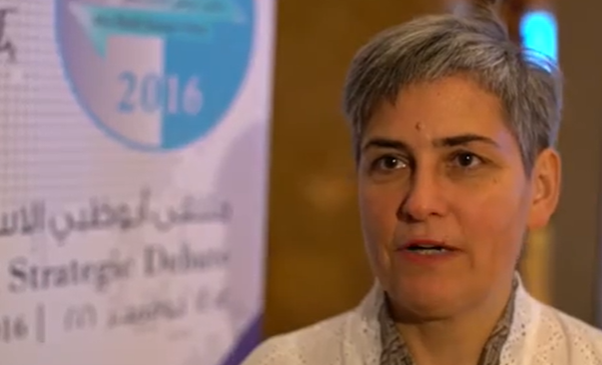
Yelena Suponina speaking (in Arabic) at the Emirates Policy Centre.
Moscow neither confirms nor denies the American request for cooperation. “I cannot confirm, but I said that, in general, Putin has repeatedly said that the problem of the Iranian nuclear dossier should be solved exclusively by peaceful means. Russia, being an ally and partner of Iran, is ready to do everything possible to facilitate this process,” said Dmitry Peskov, a spokesman for the Russian president.
[Russia wants] to contribute not only because it is beneficial to an ally, but also because Russia does not need a war in the Middle East, nor nuclear proliferation, which will increase if Teheran gets a nuclear bomb. And finally, to contribute because it is beneficial to Russia. Such mediation enhances its role in the Middle East, and also makes it an important and necessary partner for Washington.
However, we must not forget about the risks of such mediation. “This proposal is evidence of the general warming of relations between Moscow and Washington, but such proposals should be treated very carefully,” adds Suponina.
“Firstly, because the level of distrust between the parties is enormous. And it’s not just about Iranian-American relations. Washington – and this is not surprising after so many years of conflict – does not trust Moscow either. But trust in an intermediary is a key condition for successful negotiations. Moscow is also not sure that Washington will comply with the agreements reached under its leadership.”
“Secondly, there is an unstable domestic political situation in both countries. Donald Trump has actually declared war on a significant part of the American foreign policy establishment, and it is far from certain that he will win it. The Iranian leadership is also split, including into supporters and opponents of negotiations with the Americans. And not only with the Americans, but also personally with Trump, the man who withdrew from the previous peace deal (concluded under Barack Obama), and also ordered the assassination of General Qassem Soleimani, the most popular figure on the Iranian street.”
“At the same time, the serious state of health of the country’s Supreme Leader Ali Khamenei creates additional uncertainty – no one knows who will be chosen as the successor and what policy position this successor will take. And this uncertainty, both in the United States and in Iran, does not allow us to enter into any serious, long–term deals right now.”
“Thirdly, the position of the key American allies in the region, the Israelis, cannot be ignored. “Israel has a very negative attitude towards the idea of peace talks with Iran. And Trump himself is unpredictable. Therefore, it is possible that if the negotiations break down at some stage, he will take into account Benjamin Netanyahu’s idea of forceful solutions to the Iranian issue,” says Suponina.
Finally, Iran’s skepticism about the warming of Russian-American relations should be taken into account.
A number of politicians and experts in Teheran believe that Russia, in exchange for concessions from the United States, will be able to distance itself from allied relations with Iran. And neither the recently signed strategic agreement, nor the statements of the Russian leadership, nor elementary common sense (dictating that no one should change a strategic partner for American promises) can convince them. And Russia’s attempts to mediate, as well as generally discuss the Iranian issue in negotiations with the Americans, may strengthen these suspicions and, therefore, harm bilateral relations.
At the same time, there are always risks – they are the flip side of opportunities. And Russian diplomacy has repeatedly proven its ability to sail safely between the reefs of world politics.
https://johnhelmer.net/russia-doesnt-be ... more-91236
******
Tarik Cyril Amar: No Way Back but a Way Forward
March 7, 2025 natyliesb
By Tarik Cyril Amar, Website, 3/3/25
This is another (fairly) short note trying to compensate for the Western mainstream media’s systematically inadequate coverage of Russia and its politics. This time, it is a clearly important interview given by foreign minister Sergei Lavrov to the media holding “Krasnaya Zvezda” that is bound to mostly escape their attention. But not ours.
Published on the Ministry of Foreign Affairs website, Lavrov’s statements range widely. The topics he addressed included the causes of the Ukraine War, his country’s relationship with the USA (and what difference the Trump administration makes and does not make), and NATO-EU Europe’s obstructionism. As what is on the ministry’s website is only a selection from a longer conversation, we can assume that these statements are the ones that Moscow wants to make sure reach the public and especially Western decision-makers. They would do well paying very close attention.
The first thing we learn from Lavrov is that “we were not blind.” By which he means, as he explicates, that the Russian leadership was not “naïve” – and should not have been treated as naïve by the West: Moscow long understood that Western overreach was not acceptable in the long – or even, really, fairly short – term, and that something had to change one way or the other. Indeed, Russia knew this for, at least, more than a decade before the full escalation of the Ukraine War in February 2022. Lavrov mentions in this regard, as you would expect, Putin’s historic warning at the Munich Security Conference of 2007.
If Moscow has never been “blind,” then Lavrov’s implicit but clear message is that it will not start now. Russia’s last attempt to prevent the escalation of February 2022 was, the foreign minister points out, made in December 2021: “To the very last moment, we gave them [the West] a chance,” namely, in essence, to avoid the large-scale war that started in 2022 by negotiating a new security architecture.
Yet the West, that is, most of all the US and in particular then secretary of state Antony Blinken made clear to Moscow that it would get no say on the crucial issue of Ukraine joining NATO. The only non-concession Blinken offered in January 2022, Lavrov reveals, was to “limit the number of medium-range missiles” the West would “station in Ukraine in a certain way.”
That, we can add, if you know the context, was not an offer but a slap in the face. And that is how it was understood in Moscow as well. Lavrov, in this context, speaks of Western “hypocrisy” and “impunity,” stressing that the West’s refusal of any genuine compromise was principally irrational, not even based on a (mistaken) calculation of geopolitical advantage, but on, literally, “hubris.”
Lavrov also spells out why and how this experience of both Western intransigence and irrationality will continue to matter for the future: Russia’s president Vladimir Putin has already declared that there will be no return to how things were before February 2022: “nikogda” – never. This is an important message in and of itself, especially at this moment.
For, as Lavrov acknowledges, there is real – though not unlimited – improvement in the Russia-US relationship now. But nonetheless, under no, even the most favorable circumstances, will Moscow either forget the West’s attempt to degrade and regime-change it via a proxy war in Ukraine, nor will Moscow pretend to have forgotten. If there is anyone in Washington left thinking that the Russian leadership will give an inch for promises alone or neglect its own national interests (for instance in its relationships with China and other partners), you’ve been put on notice: forget about it.
At the same time, a return from “hubris” to “common sense” is what Lavrov does credit the new American president Donald Trump and his team with. This is crucial, because it indicates that Moscow, while not prepared to forget may be ready to forgive, in the sense that the Russian leadership is open for a pragmatic (a term Lavrov uses repeatedly) rebuilding of a constructive and mutually beneficial relationship with the US.
And there the Russian foreign minister has yet another, very concrete message for Washington: “Common sense dictates that the US should step aside” from the Ukraine War. In that sense, we can conclude that Moscow clearly sees the new American administration’s behavior over Ukraine as a key test: If Washington will, as currently fortunately seems likely, finally disengage from this disastrous Biden-era project, then Russia will take that as evidence of a new “common sense” in action, and not merely in words. In that case, more perspectives of, in effect, détente will open up. If, on the other hand, the US should revert to playing stupid games over Ukraine, then Moscow will conclude that the new “pragmatism” has stumbled at the very first hurdle. In that case, goodbye détente.
In the best case, according to Lavrov, the relationship between the two nuclear great powers will return to a kind of normality that was abandoned and almost destroyed by the Biden administration, namely, a frank recognition of both diverging and converging interests through respectful and reasonable dialogue between “two serious countries” that do not issue orders to each other.
Where interests, then, converge, mutual advantage can be extracted; where interests keep diverging, they can be managed to avoid escalation into conflict. This as well is a basic model of rational diplomacy that Western observers should pay close attention to. Lavrov explicitly compares the relationship that might ensue between Russia and the US to that between China and the US. That means, there is no hint of flowery-powery dreaming here: Tensions will persist, but at the same time, cooperation is possible and a “degradation into conflict” need not take place. The good news here is that the Russian foreign minister, at least for now, stresses that he is finding that rational attitude on the other side, for instance with the new US secretary of state Marco Rubio.
Where Lavrov does not see much hope is, you may have guessed, the NATO-EU Europeans. Not wanting to “be anti-European,” his remarks on them nevertheless are signally and – rest assured – deliberately unforgiving. To such an extent indeed that I, for one, feel he is letting America off all too lightly.
But regardless, Lavrov has, of course, a message, in blaming Europe in particular for hundreds of years of shaping a disruptive and violent West. Here is Russia’s foreign minister inviting the US to disassociate itself from that tradition. Fat chance, you may well say (and he would probably agree, actually). But historical veracity and future likelihood are not the point here. This is Moscow driving a wedge, as it should, between the NATO-EU Europeans and the US. So much for a real “reverse Nixon-Kissinger”: Future historians may well discuss the origins of the great American-European split of 2025 and how deftly Russia used it.
Lavrov had more to say. But let’s keep this note reasonably short. The essence of the above can perhaps best be summarized as: Get the US back in (on cautious, realistic terms), get the NATO-EU Europeans out, and keep the escalation potential down.
In other words, there is an optimistic message here: We can have a better world, slightly less prone to tumbling into World War III, on the basis of a new Russia-US relationship. Yet for the NATO-EU Europeans, to quote Dune, nothing. And they, I will add, have only themselves to blame.
Here’s to Russian-American pragmatism.
Russian Foreign Ministry
Excerpts from an interview with the Minister of Foreign Affairs of the Russian Federation S.V. Lavrov to the media holding “Red Star”, March 2, 2025
Machine translation:
https://mid.ru/ru/foreign_policy/news/2000799/
S.V. Lavrov: We were not blind. Back in 2007 in Munich, Russian President V.V. Putin warned that although we work with NATO, the European Union, and the G7 (while already being a member of the G8), we should not be made naive and taken for those who do not understand or see anything. If we are equal, then let us work equally.
We continued. V.V. Putin patiently explained to each country and partner from the Western “camp” at numerous meetings what he meant when he spoke in Munich, if anyone there did not understand something.
Until the very last moment, we gave them a chance not to bring things to a hot conflict. In December 2021, we told them, you are “talking down” the Minsk agreements , creating threats to our security, let’s sign the Treaty on European Security , where it will be ensured without drawing anyone into NATO. We were ignored.
Back in January 2022, I met with then US Secretary of State E. Blinken. He said that NATO is none of our business. They can only promise that the number of medium-range missiles they will deploy in Ukraine will be limited in a certain way. That’s all. This is also hypocrisy, impunity, exceptionalism, superhumanity. And what did it all lead to?
It was not for nothing that President V.V. Putin said at one of his major events last year that things would never be the way they were before February 2022. That is, he hoped until February, already understanding the futility of these hopes. But he gave them a chance until the very last moment. Sit down at the table, let’s agree on security, including the security of Ukraine, but so that measures to ensure it do not undermine ours. All this was being decided.
Now many politicians, former members of the government, public figures with “hindsight” (that is, they have something in common with the Russian peasant, who is strong “in hindsight”) say that it should have been done differently. But it turned out the way it did.
Our goals are clear, our objectives are defined, as they used to say in the Soviet Union.
Question: Speaking about 2022, everyone remembers that you had long negotiations with E. Blinken. When did you realize, at what stage, that it would not be possible to reach an agreement? How was the decision made that it was time to begin a special military operation ? Another month passed between your negotiations with E. Blinken.
S.V.Lavrov: I hoped that reason and common sense would prevail. But pride prevailed.
Not only the plans to materially draw Ukraine into NATO, to create bases in Crimea, on the Sea of Azov – all these plans existed. But in addition to this geopolitical plan, pride also played a big role. How is that possible? They say – no need, but we will agree? I am not exaggerating. This is in its “naked” form what they were guided by. This is sad. This is not common sense.
It is not for nothing that Donald Trump is constantly saying about any conflict, considering America’s position, that there must be common sense. And Washington’s common sense dictates to “step aside.”
Question: We remember that President of Russia Vladimir Putin said that the ball is in their court. For many, the talks in Riyadh came as a surprise. What preliminary work did you carry out and when did you start it to make these conversations happen?
Sergey Lavrov: There was no preliminary work. The presidents had a phone call at the initiative of Donald Trump. President Vladimir Putin threw this ball to him in 2018 in Helsinki at a news conference after the World Cup (this ball was the official FIFA ball). Donald Trump caught him, twisted him and threw him to the members of his delegation who were sitting in front of him.
We all proceeded from the fact that it was not D. Trump who cut off relations, but J. Biden, but it is one country. D. Trump was well aware of this and called himself. Before that, literally the day before, he sent his close adviser to Russia for a detailed conversation. Then, during a telephone conversation , at his suggestion, we agreed to meet in Riyadh. We flew there three days after the telephone conversation. Therefore, there was no preparation. I mean bilateral. Of course, each “team” prepared: ours in the Foreign Ministry, theirs in the State Department.
This was a completely normal conversation between two delegations. What is striking is that this normality was perceived as a sensation. This means that our Western partners during the term of J. Biden have managed to bring world public opinion to such a state that it perceives a normal conversation as something out of the ordinary.
We will never think alike on every issue of world politics. We acknowledged this in Riyadh. And the Americans acknowledged it. They themselves, in fact, said it. Where we see a coincidence of interests, common sense suggests that it is foolish not to use it in order to translate it into some practical actions and obtain mutually beneficial results. Where interests do not coincide (US Secretary of State M. Rubio also said this), it is the duty of responsible powers to prevent this mismatch from degenerating into confrontation. This is absolutely our position.
By the way, this is the format in which relations between the United States and China are built. They have a huge number of disagreements. The Americans are announcing many sanctions against China in order to suppress a competitor. Not so much as against us. Americans and Europeans are imposing 100% duties on electric cars. This is just unscrupulous competition. But I return to the model of relationships. Despite all these disagreements, and the fact that from time to time the top leaders of the United States and China and ministers accuse the other side of some illegal actions, primarily in the economic sphere, politics and security are also heard.
Read how Chinese ministers talk about the West’s plans in the Taiwan Strait or in the South China Sea. This is a very sharp counteraction. I understand the Chinese comrades when the West says that they adhere to the “one China” policy, which means that China is united and Taiwan is part of it. But having said that they are in favor of the “one China” policy, they are all saying that the status quo cannot be touched. And what is the “status quo”? It is an independent Taiwan. Therefore, there is a lot of cunning here.
It is not for nothing that a representative of the Chinese Ministry of Defense recently said that they are firmly in favor of a peaceful settlement, but do not rule out the use of military force if we are “led by the nose.” Something like this. At the same time, the dialogue between Beijing and Washington has never been interrupted. I believe that this is exactly the model that should be in relations between any two states. Especially between Russia and the United States, which, on the one hand, can find coinciding interests and do a lot of mutually beneficial things, and on the other hand, they are obliged not to lead to war in the event of a divergence of interests.
Even when Donald Trump was first elected, many politicians fell into euphoria. Now they also fall into it.
The United States still has the same goal – to be the first country in the world. Under Joe Biden, under Barack Obama and the Democrats in general, they tried to do this, subjugating everything and everything, paying for this support, as they pay for NATO, as they paid Japan and South Korea by creating outposts with the participation of NATO with nuclear components.
Donald Trump, he is a pragmatist. His slogan is common sense. It means (everyone sees this) a transition to a different way of doing things. But the goal is still “MAGA” (Make America Great Again). Now he has a new cap: “Everything that Donald Trump promised has been done.” This gives a lively, human character to politics. Therefore, it is interesting to be with him.
His team, Secretary of State Miguel Rubio and National Security Adviser Mark Waltz, are absolutely sane people in every sense of the word. They talk on the basis that they do not command us, and we do not command them. It’s just that two serious countries sat down to talk about where they had something wrong and what their predecessor had messed up in four years, destroying all channels of contact without exception, imposing a number of sanctions, followed by the expulsion of American companies, and suffering losses of hundreds of billions of dollars.
Question: Apparently, this has been going on for quite a long time, if not for the entire post-war history. During your work at the UN, you were in a constructive dialogue and signed joint documents with the American side. And they violated these agreements, what was declared, literally in a matter of months. This was the case with Kosovo, with Iraq. A month before former Secretary of State Colin Powell’s speech, you had a joint document with the US representative on the need to settle the dialogue, etc. How did you react to such things?
Sergey Lavrov: This has already become habitual. You are absolutely right. The attempt to “cheat” everyone, to present their position as the only correct one, continues.
This was the case even under US Secretary of State Colin Powell. We also worked closely with him. I am sure that he did not know what was in the test tube (what kind of white powder it was) that he shook at the UN Security Council and said that the then President of Iraq Saddam Hussein “did not live.” He was simply framed by CIA officers.
I don’t want to be anti-European. However, the current situation confirms the idea that many historians explain. Over the past 500 years (when the West has more or less formed in the form in which it has survived to this day, of course, with some changes), all the tragedies of the world originated in Europe or happened thanks to European politics. Colonizations, wars, crusaders, the Crimean War, Napoleon, the First World War, A. Hitler. In retrospect, the Americans did not play any inflammatory or “incendiary” role.
And now, after Joe Biden’s “term”, people have come who want to be guided by common sense. They openly say that they want to end all wars, they want peace. Who demands the “continuation of the banquet” in the form of war? Europe.
Danish Prime Minister Mark Frederiksen said that “for Ukraine now peace is worse than war.” British Prime Minister Kevin Starmer, who followed French President Emmanuel Macron to persuade US President Donald Trump not to end “this story” so quickly, and at the same time boasted that this year Britain would make its largest contribution in the form of weapons to Ukraine, that is, directly contradicting Donald Trump and stating that they would “pump up” the Kiev regime. President Emmanuel Macron is running around with some ideas, just like Christopher Starmer. They say that so many thousands of peacekeepers are being trained, they will provide them with air cover. This is also impudence.
First of all, no one asks us. President Donald Trump understands everything. He said that it is too early to say when there will be a settlement: “This issue can be discussed, but the consent of the parties will be needed.” He behaves correctly.
This plan to introduce “peacekeepers” into Ukraine is a continuation of the “incitement” of the Kyiv regime to war against us. These “guys” are “trampled” on the Minsk agreements . They admitted this quite recently. Their co-authors (our western neighbors) were not going to comply with them, and by handing over their weapons, they brought to power first Petr Poroshenko and then Vladimir Zelensky “on their own bayonets.” It was they who “inspired” him to make a 180-degree turn, although German Foreign Minister Anna Baerbock might have regarded it as 360 degrees.
Vladimir Zelensky turned 180 degrees from a man who came to power on the slogans of peace, on the slogans “Leave the Russian language, this is our common language, our common culture” (this is all on the Internet) and in six months turned into a pure Nazi and, as President of Russia Vladimir Putin rightly said, into a traitor to the Jewish people.
Just as they brought him to power “on bayonets” and pushed him forward, they now also want to prop him up with their “bayonets” in the form of peacekeeping units. But this will mean that the root causes will not disappear.
When we ask these “thinkers” what will hypothetically happen to the part that they will take under control, they answer that nothing – Ukraine will remain there. I asked one “comrade”: will the Russian language be banned there? He said nothing. They cannot utter words of condemnation of what has happened. No other language has been subject to such aggression. But imagine if French or German were banned in Switzerland, or English was banned in Ireland. Now the Irish there want “a little” self-determination. If they tried to ban English now, they would “shake” the entire UN for all its “columns”, demanding the condemnation of Ireland.
And here it is “possible”. You talk to them in the face, but they don’t answer. This is just like I (soon to be three years old) publicly at UN meetings, and meeting with the press, I ask to help us get at least some information on Bucha (a tragedy that was used to impose sanctions on us). These scenes were shown by the BBC two days after not a single one of our soldiers was already there. We are asking for only one thing now (I have already despaired of counting on anything more): can I see the list of those people whose corpses were shown on the BBC channel? I even publicly asked UN Secretary-General Antonio Guterres about this at a meeting of the Security Council, and more than once.
The last time was in September 2024. I was in New York for the General Assembly session. I had a final press conference , the entire world press was there (there were about seventy of them), and I told them: “Guys, you are journalists, aren’t you professionally interested in finding out what happened there?”
We have officially requested information from the UN Human Rights Office (they have a “mission on Ukraine” within this Office, which was not created by consensus – they did not consult with anyone) about the names of those people who were shown there already dead. There is no reaction at all.
And I shamed the journalists too. It was already 2.5 years after this tragedy, when this BBC Bucha was shown on the screen and in social networks. It was a “news explosion”. “Three days and it’s all gone?” I say, “Did they tell you to keep it down?”
I know half the journalists there well. They have been working there for a long time. Can’t they send a journalistic request to the Ukrainians? No one does anything. The “command” came through and that’s it.
https://natyliesbaldwin.com/2025/03/tar ... y-forward/




